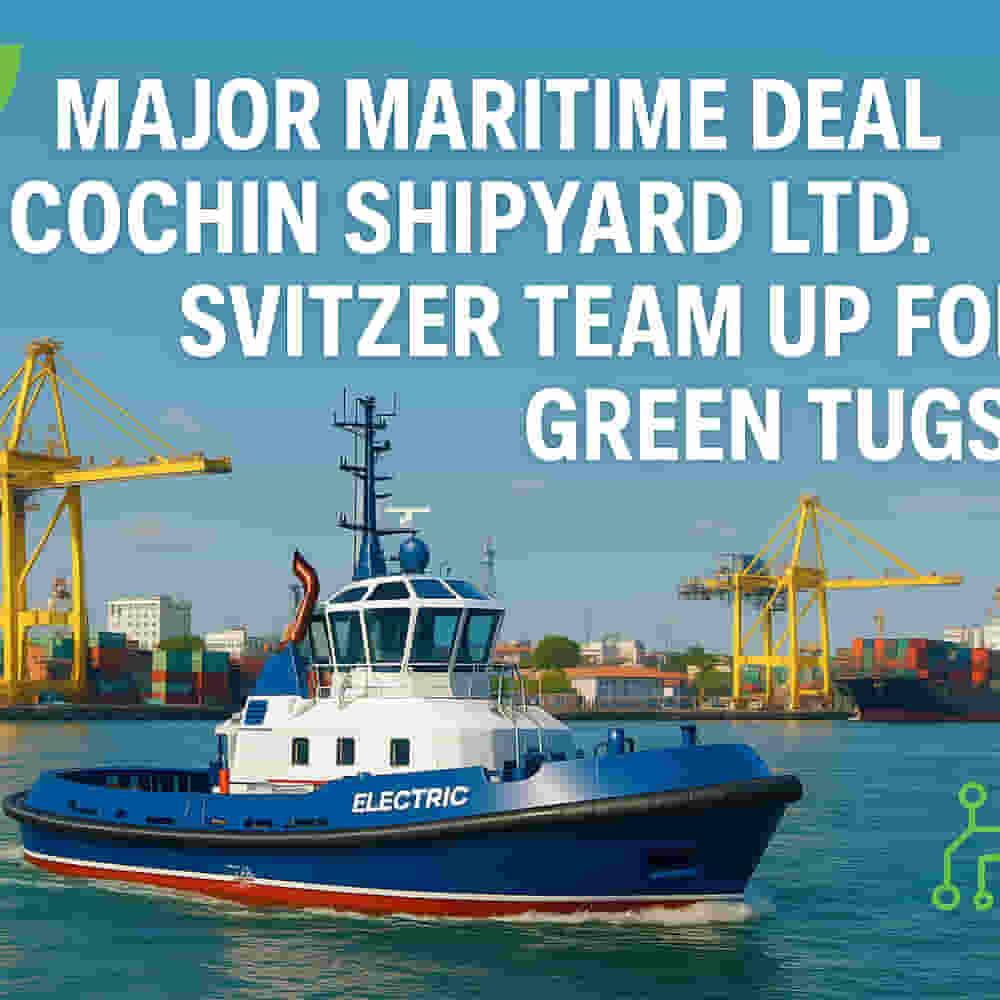Cochin Shipyard Ltd. Signs Letter of Intent with Svitzer for Electric Tug Construction in India
Industrial Goods/Services
|
31st October 2025, 6:24 AM

▶
Stocks Mentioned :
Short Description :
Detailed Coverage :
Cochin Shipyard Limited announced on Friday, October 31, that it has signed a Letter of Intent (LoI) with Svitzer, a company based in Denmark. This agreement is for the construction of new-generation electric TRAnsverse tugs. The LoI was signed on October 30, 2025, during the India Maritime Week, organized by the Ministry of Ports, Shipping and Waterways in Mumbai.
Under the LoI, both companies will collaborate on the design and construction of these electric tugboats at Cochin Shipyard's facilities in India. This partnership signifies Svitzer's commitment to the 'Make in India' initiative and its intention to bring highly advanced and environmentally progressive tug designs to the market. The goal is to support India's objectives for greener ports and cleaner towage operations.
TRAnsverse tugs are recognized for their superior maneuverability and efficiency, offering precise control in confined waterways. This leads to enhanced safety and operational performance while also reducing energy consumption and emissions. These vessels are intended for Svitzer's global fleet renewal and expansion plans.
Impact: This collaboration is expected to significantly boost Cochin Shipyard's capabilities in building advanced, green maritime vessels, potentially leading to future orders and further strengthening the 'Make in India' initiative in the shipbuilding sector. It also aligns with global trends towards decarbonization in shipping. The news could positively influence investor sentiment towards Cochin Shipyard. Impact rating: 7/10.
Difficult Terms Explained: Letter of Intent (LoI): A preliminary, non-binding agreement that outlines the basic terms and understanding between two parties before a formal contract is signed. TRAnsverse tugs: A type of tugboat known for its unique propulsion system that allows for exceptional maneuverability and precise control, enabling efficient operations in challenging environments like ports. Make in India: A government initiative aimed at encouraging companies to manufacture products within India, thereby boosting domestic production, creating jobs, and fostering economic growth.